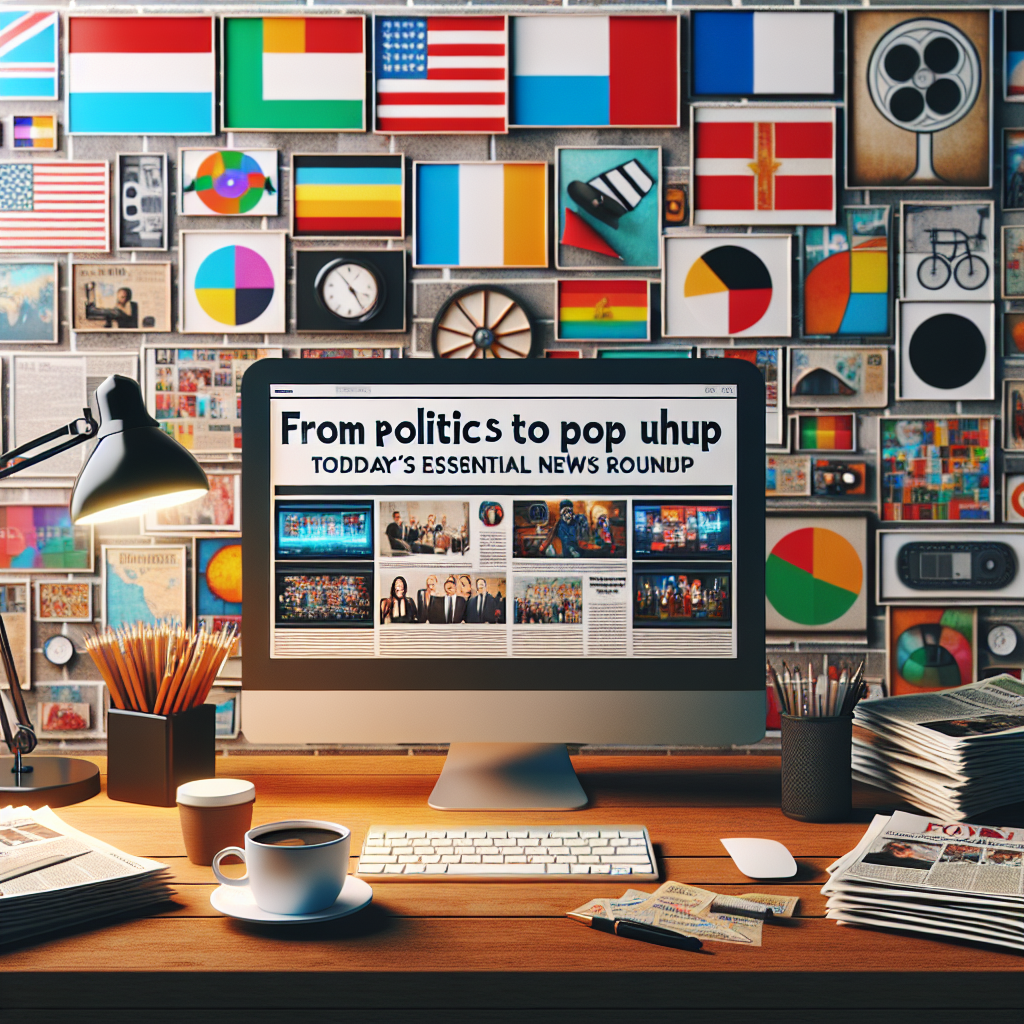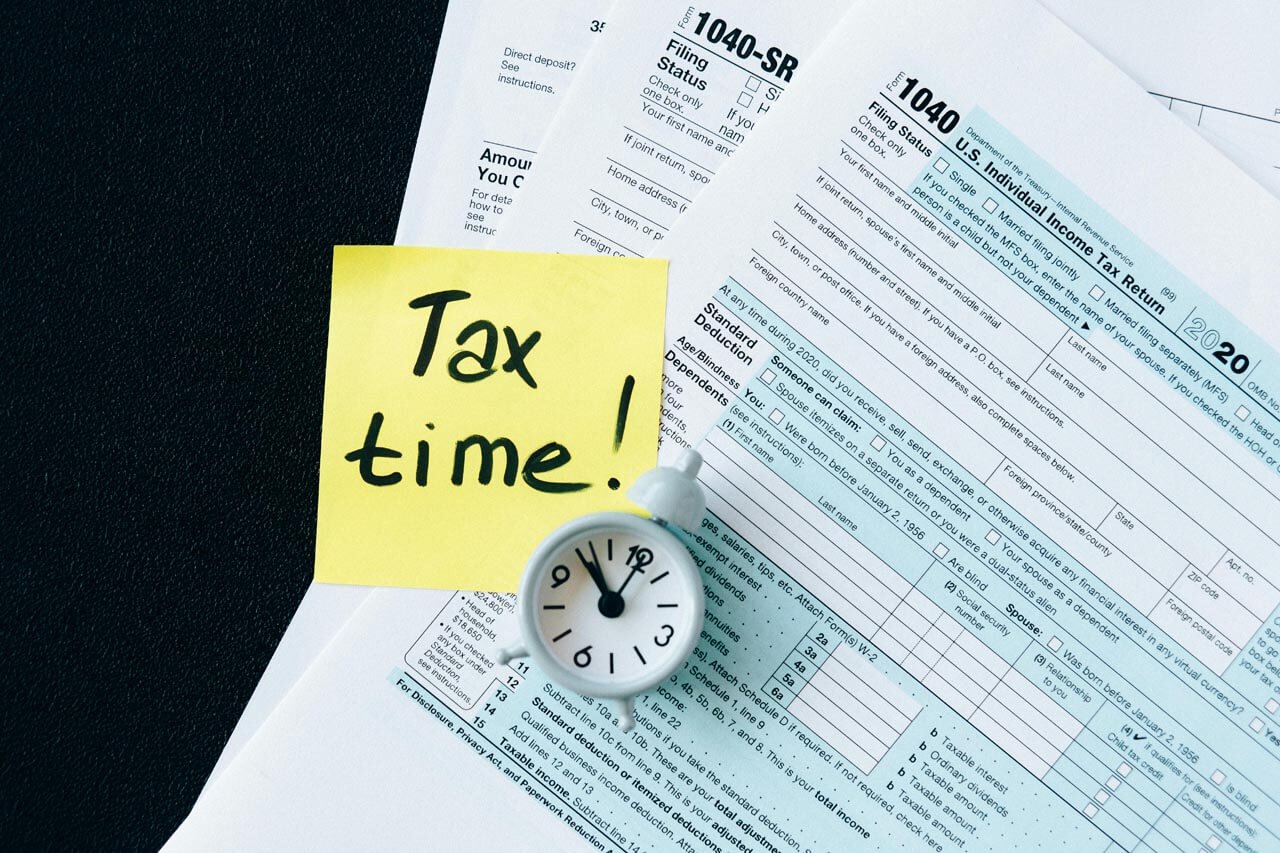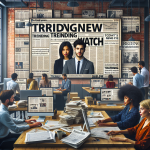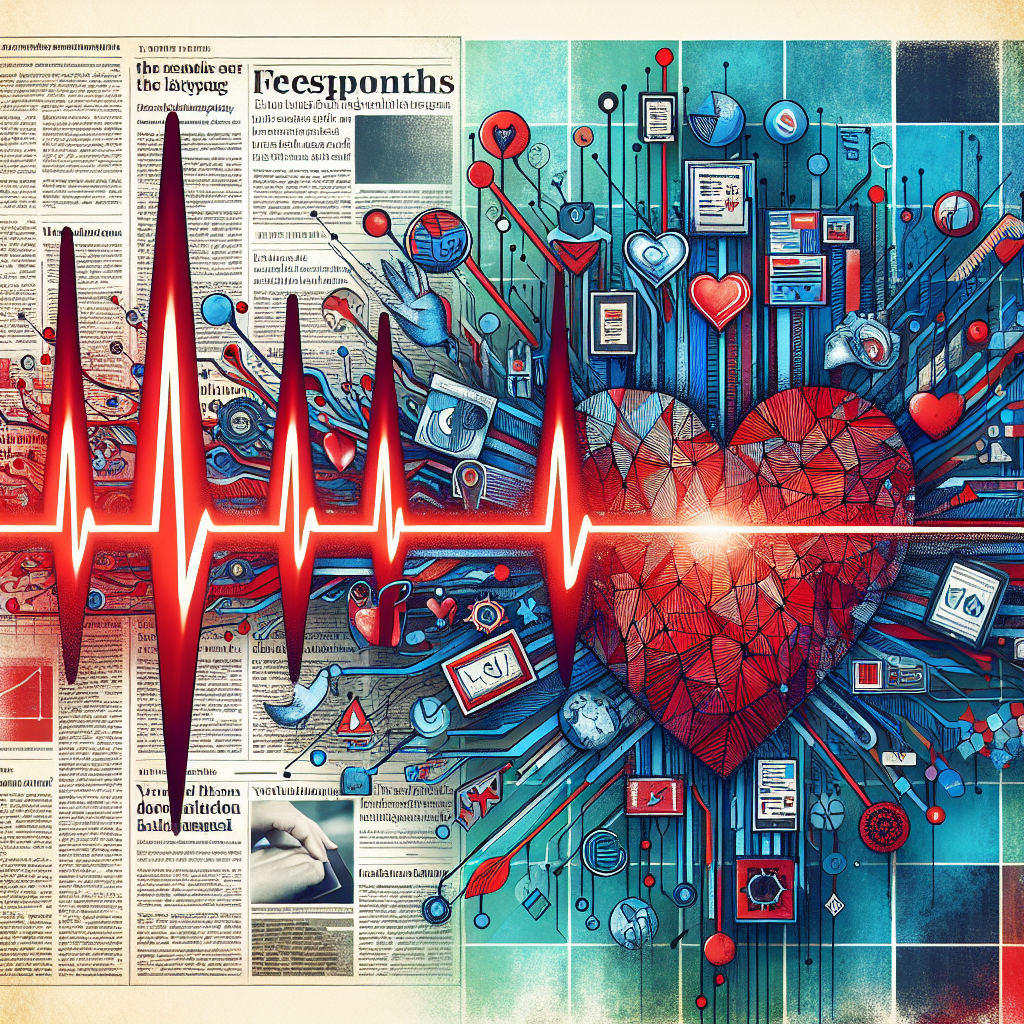From Politics to Pop Culture: Today’s Essential News Roundup

Table of Contents
- Table of Contents
- The Political Landscape
- Current Political Climate
- Major Developments
- Pop Culture Phenomena
- Influential Trends
- Major Events in Pop Culture
- The Intersection of Politics and Pop Culture
- How They Influence Each Other
- Case Studies
- Impact on Society
- Socio-Economic Effects
- Challenges and Criticisms
- Future Implications
- The Role of Technology
- Continued Polarization
- Looking Ahead: Trends to Watch
- Political Trends
- Pop Culture Trends
- Conclusion
In today’s fast-paced world, the boundaries between politics and pop culture are increasingly blurred. As they intersect, they influence public opinion, economic trends, and even social behavior. This comprehensive article explores essential developments across both realms, providing a nuanced understanding of how they shape our society. We will touch on key political events, notable pop culture moments, and the intricate relationship between the two.
Table of Contents
- The Political Landscape
- Pop Culture Phenomena
- The Intersection of Politics and Pop Culture
- Impact on Society
- Looking Ahead: Trends to Watch
- Conclusion
The Political Landscape
Current Political Climate
The political climate today is characterized by polarization, rapid shifts in public opinion, and an increased focus on grassroots movements. Recent elections around the world have demonstrated a trend toward populism, with candidates appealing directly to voters’ emotions and values.
For a deeper understanding of the populist wave, consider reading this article on the rise of populism. It highlights how these movements have reshaped traditional political structures.
Major Developments
-
Legislative Changes: Countries are enacting new laws addressing critical issues such as climate change, healthcare, and social justice. For instance, the recent climate legislation in the U.S. has sparked debates about the economy and environmental sustainability.
-
International Relations: Developments in international relations, such as the ongoing tensions between major world powers, significantly impact global economies. The Russia-Ukraine conflict remains a focal point in political discussions, influencing energy markets and resulting in humanitarian crises.
- Election Dynamics: With elections on the horizon in various nations, we see an increased focus on voter turnout and election integrity. Understanding these dynamics is crucial for businesses and entrepreneurs looking to navigate the evolving landscape.
Pop Culture Phenomena
Influential Trends
Pop culture is vibrant and constantly evolving, reflecting and shaping society’s values. Recent trends include:
-
Streaming Services Revolution: Platforms like Netflix and Hulu have transformed the way we consume media. The rise of streaming has not only changed entertainment consumption but also influenced political campaigning, as seen in the recent "Netflix and Chill within Politics" campaigns.
-
Social Media Impact: Social media platforms serve as vital arenas for cultural exchange. Hashtags like #MeToo and #BlackLivesMatter have provided a voice for marginalized groups, influencing both pop culture and the political landscape.
- Influencer Culture: Social media influencers have become significant players in shaping public opinion, from fashion to politics. This phenomenon is reflected in campaigns where influencers endorse candidates or hot-button issues.
Major Events in Pop Culture
-
Awards Shows: Events like the Oscars or Grammys draw massive audiences and serve as platforms for artists to voice political opinions. This intersection provides an intriguing dynamic that touches millions.
-
Cultural Movements: Movements like sustainable fashion and mental health awareness are at the forefront of pop culture discussions, sparking broader societal conversations.
- Celebrity Activism: Many pop culture figures now leverage their platforms to advocate for political change, bridging the gap between entertainment and activism.
The Intersection of Politics and Pop Culture
How They Influence Each Other
The relationship between politics and pop culture is reciprocal. Here’s how each domain influences the other:
-
Media Representation: The portrayal of political issues in films, TV shows, and music can shift public perception and understanding, mobilizing activism or creating apathy.
-
Public Opinion: Pop culture can serve as a barometer for public sentiment. Issues depicted in media resonate with audiences, pushing political agendas forward.
- Crisis Communication: Political entities increasingly engage with pop culture to communicate messages effectively. This tactic can humanize politicians and make political issues more relatable.
Case Studies
-
The 2008 Obama Campaign: Barack Obama’s campaign utilized social media and popular culture effectively, tapping into the youth demographic. This interplay highlighted the importance of digital engagement in political campaigns.
- Protests and Popular Music: Songs like “Alright” by Kendrick Lamar and “This is America” by Childish Gambino articulate societal issues, driving political discourse and inspiring movements.
Impact on Society
Socio-Economic Effects
The interplay of politics and pop culture influences various societal factors, including:
-
Consumer Behavior: Political statements made by celebrities can impact brand perception and consumption patterns, leading to shifts in market demand.
-
Youth Engagement: Young people are increasingly engaged in both politics and pop culture discussions, driven by virality in social media. This engagement shapes future leaders and voters.
- Civic Responsibility: Enhanced awareness of social justice issues through pop culture can lead to increased civic engagement and responsibility.
Challenges and Criticisms
While the connection between politics and pop culture can lead to positive change, it also presents challenges. Issues of misinformation, performative activism, and oversimplification of complex political issues often arise.
Future Implications
The Role of Technology
The rise of artificial intelligence and virtual reality may further transform the political landscape, offering new avenues for engagement while posing ethical dilemmas.
Continued Polarization
As politics and pop culture converge, there’s a risk of further polarization, necessitating a more nuanced understanding of societal issues.
Looking Ahead: Trends to Watch
Political Trends
-
Increased Grassroots Movements: The success of local initiatives suggests a growing interest in community-focused politics.
- Focus on Equity and Inclusion: Expect more dialogues around equity in all aspects of life, influenced heavily by pop culture.
Pop Culture Trends
-
Sustainability: Increasing awareness of climate change is leading pop culture to embrace sustainability in fashion, music, and lifestyle.
- Diversity Representation: Expect continued emphasis on diversity in media representation, aligning with ongoing social movements.
Conclusion
The convergence of politics and pop culture is not just a fleeting trend; it’s a vital component of modern society that shapes how we communicate, engage, and understand the world around us. By examining these interactions, we can glean insights that are crucial for entrepreneurs, marketers, and citizens alike.
Understanding these dynamics can help business owners and marketers craft strategies that resonate with current societal trends while navigating the complexities of today’s political landscape.
For more insights on effective communication strategies, consider reading our article on How Branding Can Influence Public Perception.
In this age of information, staying informed is not merely an option but a necessity. As we move forward, let us remain vigilant and responsive to the evolving dialogue between politics and pop culture.
Latest Posts
Lorem ipsum dolor sit amet, consectetur adipiscing elit. Ut elit tellus, luctus nec ullamcorper mattis, pulvinar dapibus leo.



















No Comments